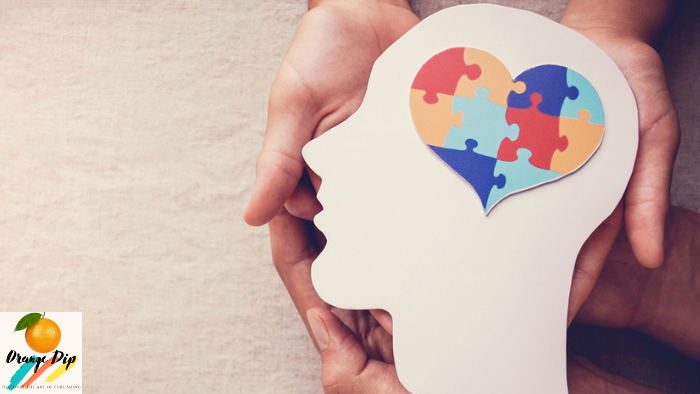In today’s fast-paced world, many people are seeking ways to improve their mental health and overall well-being. One increasingly popular method is through the companionship of pets. Pets offer more than just friendship; they can significantly impact mental health by reducing stress, anxiety, and feelings of loneliness. Understanding how pets contribute to mental well-being can help individuals better manage their mental health issues and enhance their quality of life.
Emotional Support and Companionship
Pets provide a consistent source of companionship and unconditional love. This bond can be particularly beneficial for individuals struggling with mental health issues. The presence of a pet can alleviate feelings of loneliness and isolation, offering comfort and emotional support.
Reducing Stress and Anxiety: Interacting with pets can lower stress hormones like cortisol while increasing levels of serotonin and dopamine, the chemicals associated with happiness and well-being. Activities such as petting, playing, or simply sitting with a pet can produce a calming effect, reducing anxiety and promoting relaxation.
Boosting Mood: The joy and affection pets bring can significantly improve mood. Their playful nature and unconditional love provide a sense of purpose and fulfillment, helping to combat feelings of sadness and depression.
Creating Routine: Caring for a pet establishes a daily routine, which can be particularly beneficial for those dealing with depression or anxiety. The responsibility of feeding, walking, and grooming a pet can provide structure and a sense of accomplishment, encouraging individuals to maintain a daily schedule.
Physical Health Benefits
The physical benefits of pet ownership also contribute to mental health. Regular physical activity, such as walking a dog, not only improves physical health but also has positive effects on mental well-being.
Encouraging Exercise: Pet owners, particularly dog owners, are more likely to engage in regular physical activity. Exercise is a natural stress reliever and mood enhancer, helping to reduce symptoms of depression and anxiety.
Improving Cardiovascular Health: Studies have shown that pet owners often have lower blood pressure and cholesterol levels, reducing the risk of heart disease. These physical health benefits are closely linked to better mental health outcomes.
Enhancing Social Interaction: Walking a dog or visiting a dog park can increase opportunities for social interaction. Socializing with other pet owners can build a sense of community and reduce feelings of isolation.
Therapeutic Benefits of Animal-Assisted Therapy
Animal-assisted therapy (AAT) is a therapeutic intervention that incorporates animals, such as dogs, cats, or horses, into treatment plans. AAT has been shown to be effective in treating various mental health conditions, including anxiety, depression, and post-traumatic stress disorder (PTSD).
Alleviating Symptoms of PTSD: For individuals with PTSD, animal-assisted therapy can provide a sense of security and comfort. Therapy animals help reduce hypervigilance and anxiety, allowing individuals to feel safer and more at ease.
Improving Emotional Regulation: Interacting with therapy animals can help individuals better regulate their emotions. The presence of a calm and non-judgmental animal can encourage emotional expression and provide a soothing influence during therapy sessions.
Enhancing Therapeutic Engagement: Animals can serve as a bridge between the therapist and the client, making therapy sessions more engaging and less intimidating. This increased engagement can lead to better treatment outcomes and a more positive therapeutic experience.
Choosing the Right Pet
While the benefits of pet ownership are significant, it’s important to choose the right pet that fits an individual’s lifestyle and needs. Factors such as living situation, financial resources, and personal preferences should be considered when selecting a pet.
Lifestyle Considerations: Different pets require varying levels of care and attention. For example, dogs need regular exercise and social interaction, while cats are more independent. Understanding the time and commitment required for a specific pet can help ensure a positive and manageable experience.
Financial Responsibility: Owning a pet comes with financial responsibilities, including food, veterinary care, and grooming. It’s essential to ensure that these costs are manageable before bringing a pet into the home.
Allergies and Health Concerns: Consider any allergies or health concerns that might be affected by pet ownership. Some people may have allergic reactions to pet dander, which could exacerbate rather than alleviate mental health issues.
Supporting Mental Health Through Pet Ownership
The therapeutic benefits of pets are well-documented, but it’s important to approach pet ownership with realistic expectations. Here are some tips for integrating a pet into your mental health strategy:
Build a Routine: Establish a daily routine that includes time for pet care and interaction. This can provide structure and a sense of purpose, which are beneficial for mental health.
Seek Professional Advice: If you have specific mental health concerns, consult with a mental health professional about how pet ownership might fit into your treatment plan. They can provide guidance on incorporating a pet into your therapeutic strategy.
Join Pet Communities: Engage with local or online pet communities. Connecting with other pet owners can provide additional social support and enhance the positive effects of pet ownership on mental health.
Conclusion
Pets offer a unique and powerful form of support that can significantly enhance mental health and well-being. Through companionship, physical activity, and therapeutic benefits, pets help reduce stress, anxiety, and feelings of loneliness.



